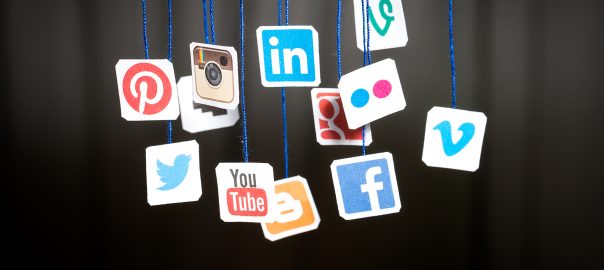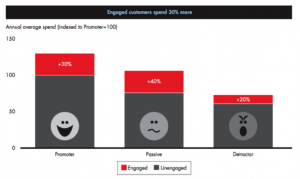Feeling overwhelmed by all the social media options? Columnist and Bitly senior content strategist Blaise Lucey says it may be time to simplify and cut the clutter.
![]() Minimalism. As far as I can tell, it’s the art of throwing away things until your apartment looks like an Apple Store. But it’s a useful exercise — especially when it comes to prioritization and organization. Or, for a company, let’s call it reprioritization.
Minimalism. As far as I can tell, it’s the art of throwing away things until your apartment looks like an Apple Store. But it’s a useful exercise — especially when it comes to prioritization and organization. Or, for a company, let’s call it reprioritization.
In 2010, as the social media craze went into overdrive, there was a very real fear of being left behind by The Future. You had to hire social media experts who understood The Future. You had to focus on building out a presence on every channel so you could connect with The Future.
The penalties, everyone was convinced, would be dire. Just like the rewards for First Adopters would be immense, gratuitous, paradisical. For a lucky few, that turned out to be true. Everyone else? Almost half (42 percent) of marketers are still trying to figure out how to calculate ROI from social media.
It’s time to start thinking minimalistically. Take a careful look at the time you spend on social channels and the time you spend creating content for those channels. Is your social media marketing cluttered? Are you constantly feeling stretched thin between too many different mediums?
It might be time to start practicing the art of social media minimalism.
Analyzing the clutter
Your average enterprise now markets on eight different channels. That doesn’t mean they’re equally effective. Given an email list and a website, you could probably hack together meaningful sales much better than, say, a Twitter account and a Facebook Page.
We know that nearly half of marketers don’t know the ROI of social media. Meanwhile, consumers aren’t buying things from social media directly. Mary Meeker’s 2016 Internet Trends Report shows that just 12 percent of Facebook and Instagram members are on the channels to shop. On Twitter, the number stands at 9 percent. LinkedIn? Five percent. Snapchat? Three percent. Despite the much-hyped idea of “social buy buttons,” the research shows that this is still more theory than reality.
Now, let’s talk about engagement metrics. It’s been well-established that Facebook is a pay-to-play platform — even if you’re just trying to talk to the fans you already have. In some cases, organic reach of content has sunk to about 2 percent of the page’s total audience.
Research from Quintly shows that Instagram is following the same route: On average, engagement on Instagram has declined by 27 percent on images and 39 percent on videos posted to the social network.
To practice the art of social media minimalism, conduct an audit. Figure out what your engagement rate is on each platform and see how much traffic is being driven by each channel.
How many clicks, really, are Twitter and Facebook driving back to your website? What about Instagram? Are you using a trackable link to see how many followers are visiting your site? How are you tracking Pinterest success?
Don’t be afraid to cut the clutter.
Simplify, simplify, strategize
It is better to be on two effective social media channels than five or eight or 10 that take up your time but don’t get results.
The Race to the Future is over. There’s no need to panic. In fact, it’s better to wait and see.
Right now, if you listen to the hype, you’re going to end up making a Snapchat account. But, with a rating of 3.43 out of 8, Snapchat is ranked as the second least-effective platform by marketers, only narrowly beating out AOL.
The real risk of so much clutter is that you end up moving to the next channel before proving that the last one is worth your time. You accumulate things, but for no other reason than to say that you have them. (“Sure, we have a Snapchat! The kids love us!”)
Social media minimalism is about defying the hype and focusing on what really works for your brand. It’s not the channel, but the content and audience that will make it worth it. If Facebook doesn’t show your stuff to people, and you don’t have the budget to do it, it may be time to think about Instagram or YouTube instead.
Before you start cluttering, simplify and strategize. Know what you’re going to post on a channel, and think about how you’re going to resource it and prove success.
By practicing the art of social media minimalism, you won’t feel as overwhelmed — and you’ll get more ROI because of it.
Some opinions expressed in this article may be those of a guest author and not necessarily Marketing Land. Staff authors are listed here.
Marketing Land – Internet Marketing News, Strategies & Tips
(62)
Report Post





